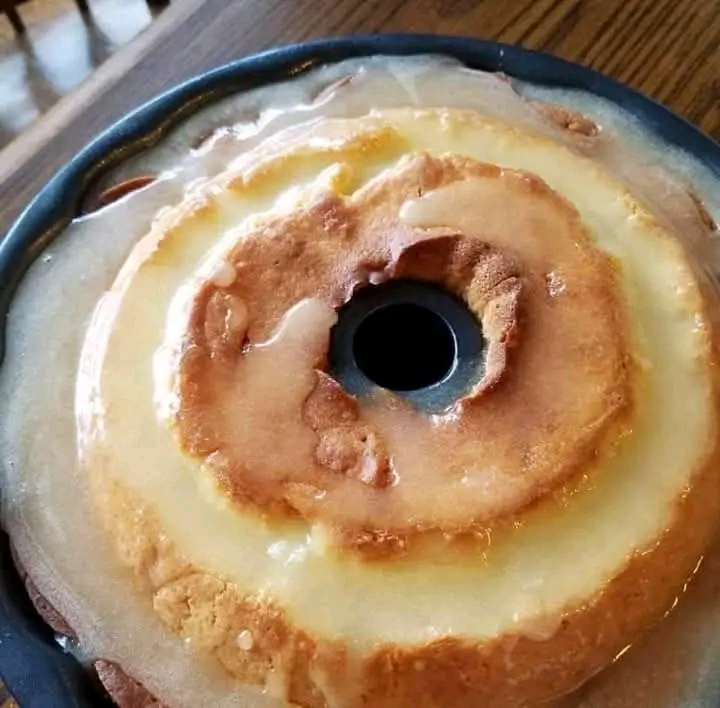Bundt Cake with Glaze: A Classic Dessert Recipe
Introduction
The Bundt cake is a timeless dessert, known for its iconic ring shape and rich flavors. Originating from European kugelhopf cakes, this cake became a household name in the mid-20th century when the Bundt pan was popularized in the United States. This recipe combines the soft, moist texture of the cake with a sweet, glossy glaze that enhances its flavor. Whether served at celebrations or enjoyed as a cozy treat with tea, a Bundt cake is a true delight for dessert lovers.
Ingredients
For the Cake:
3 cups all-purpose flour
1 teaspoon baking powder
1/2 teaspoon baking soda
1/2 teaspoon salt
1 cup unsalted butter, softened
2 1/2 cups granulated sugar
4 large eggs
1 teaspoon vanilla extract
1 cup sour cream or Greek yogurt
1/2 cup whole milk
Optional: zest of 1 lemon or orange for extra flavor
For the Glaze:
1 1/2 cups powdered sugar
2–3 tablespoons fresh lemon juice (or milk for a creamy glaze)
1 teaspoon vanilla extract
Instructions
Step 1: Prepare the Bundt Pan
Preheat your oven to 350°F (175°C).
Grease the Bundt pan thoroughly with butter or non-stick spray and dust with flour to ensure easy removal.
Step 2: Mix the Dry Ingredients
In a medium bowl, whisk together flour, baking powder, baking soda, and salt. Set aside.
Step 3: Cream Butter and Sugar
In a large mixing bowl, beat the softened butter and sugar together using an electric mixer until light and fluffy (about 3–4 minutes).
Step 4: Add Eggs and Flavoring
Beat in the eggs one at a time, followed by the vanilla extract. If using zest, mix it in at this stage.
Step 5: Combine Wet and Dry Ingredients
Gradually add the dry ingredients into the butter mixture, alternating with the sour cream and milk. Begin and end with the dry ingredients. Mix until just combined—do not overmix.
Step 6: Bake the Cake
Pour the batter evenly into the prepared Bundt pan and smooth the top with a spatula.
Bake for 50–60 minutes or until a toothpick inserted into the center comes out clean.
Step 7: Cool and Remove
Allow the cake to cool in the pan for 10–15 minutes before inverting it onto a wire rack to cool completely.
Step 8: Prepare the Glaze
In a small bowl, whisk together powdered sugar, lemon juice (or milk), and vanilla extract until smooth and pourable. Adjust consistency by adding more liquid if needed.
Step 9: Glaze the Cake
Once the cake is fully cooled, drizzle the glaze evenly over the top, letting it flow naturally down the sides.
Methods
- Traditional Method: Follow the step-by-step instructions for a classic Bundt cake.
- Flavor Variations:
Add cocoa powder for a chocolate Bundt cake.
Use almond or coconut extract for unique flavors.
Incorporate fruits like blueberries, raspberries, or dried cranberries into the batter.
- Presentation Tips: Decorate the cake with fresh berries, edible flowers, or a dusting of powdered sugar for an elegant touch.
History and Formation
The Bundt cake’s roots trace back to Europe, particularly Germany and Austria, where the “kugelhopf” cake was traditionally made in fluted pans. The modern Bundt pan was introduced in the 1950s by Nordic Ware, an American company. The pan’s unique design allows for even baking and beautiful presentation, making it a beloved tool in baking history.
Conclusion
A Bundt cake with glaze is a showstopper dessert that combines simplicity with elegance. Its versatility allows bakers to experiment with flavors and decorations, making it perfect for any occasion.
Who Loves Bundt Cake?
Bundt cakes are adored by all ages! Dessert enthusiasts appreciate its moist texture, home bakers love its ease of preparation, and party hosts value its stunning appearance. Fans often enjoy it as a centerpiece dessert at birthdays, holidays, or weddings.
Extra Tip for Lovers of Bundt Cakes
If you’re a die-hard Bundt cake lover, invest in different pan designs to create cakes with intricate patterns and shapes. It adds an artistic flair to your baking!
Enjoy baking this Bundt cake with glaze and share the love with friends and family!
